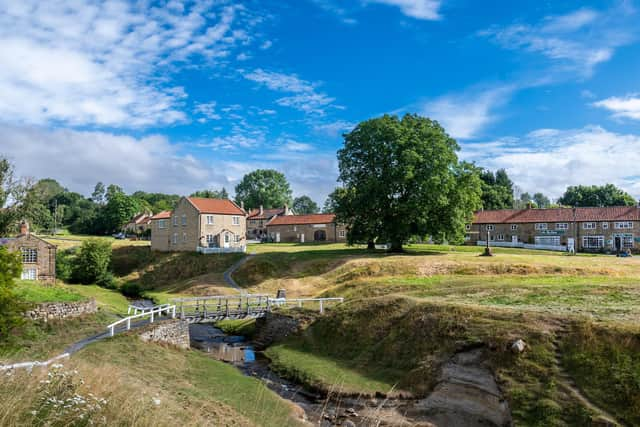Government inquiry called to examine effects of cost of living crisis on the countryside
The All-Party Parliamentary Group (APPG) on Rural Business and the Rural Powerhouse has issuing a call for evidence from across the rural economy to investigate further and determine the effects the cost-of-living crisis is having on businesses and communities in the countryside.
The APPG will seek both oral and written evidence which will feed into a report to be published in early 2023 and will investigate four key themes based upon General impact on business and consumer; Employment; Housing and Energy.
Advertisement
Hide AdAdvertisement
Hide AdThe inquiry comes as the UK is in a cost-of-living crisis with inflation currently at 9.9 per cent and is expected to climb higher and energy prices soaring, leading to a considerable financial squeeze on consumers and businesses alike.


However, rural areas face further inherent inequalities such as sparsity which makes the cost of living more expensive on average, as well as being less productive with lower wages and higher house prices.
The inquiry will look at the impact of the cost-of-living crisis in rural areas to consider if rural areas are disproportionately affected by the economic situation, as well as considering what the longer-term political consequences will be for rural areas, and what steps can be taken to mitigate the impacts.
Julian Sturdy, the MP for York Outer, is co-chair of the APPG.
Advertisement
Hide AdAdvertisement
Hide Ad

He said: “This inquiry couldn’t be more timely. To understand the true effects of the cost-of-living crisis on rural communities, we need to hear from businesses and individuals alike.
“I strongly encourage anyone with any interest in the countryside, its businesses and communities to submit evidence to this report to ensure we build the most accurate picture possible to present to the Government.”
This new inquiry follows the highly influential report published earlier this year by the APPG: Levelling Up The Rural Economy.
It was an inquiry into rural productivity, which collated evidence from more than 50 industry bodies, charities, companies, campaign groups, academics and business leaders.
Advertisement
Hide AdAdvertisement
Hide AdThe report produced 27 key recommendations for policy makers to unlock £43bn GVA in the rural economy and to close the 18 per cent productivity gap compared to the national average.
In particular, the report noted a broken planning system which has failed those who live and work in rural areas, the lack of policy levers necessary to make a significant change to the rural economy, a lack of skills provision was causing rapid ‘brain drain’ in rural areas urgent action was required to address labour shortages and supermarkets’ price-setting powers.
It also said the government was backing away from commitments to provide everyone with full-fibre and 4G, plus the current tax system is disincentivising business investment and diversification.
The report added that there was “an overwhelming consensus” that no government in recent memory had had a programme to unlock the economic and social potential of the countryside and the recent Levelling Up White Paper made no mention of economic growth in the countryside.
Advertisement
Hide AdAdvertisement
Hide AdThe Country Land & Business Association (CLA), which represents 28,000 farmers, land managers and rural businesses in England and Wales is supporting the new inquiry.
Mark Tufnell, president of the Country Land and Business Association said: “Rural businesses and communities have faced many crises over the last few years. During the pandemic, it was the rural economy which successfully kept the nation fed during a time of unprecedented challenges.
“With the subsequent cost-of-living crisis still developing, with increased fuel, fertiliser, energy and food prices all still rising, the time is now to investigate the real impact that these challenges are having on not just businesses but for everybody who’s life is tied to the countryside.
“The CLA has a broad range of members with incredibly varied enterprises across all aspects of the rural economy, and we will be strongly encouraging as many of our members as possible to submit evidence to this very important new inquiry.”
The closing date for evidence to be submitted is November 25.

